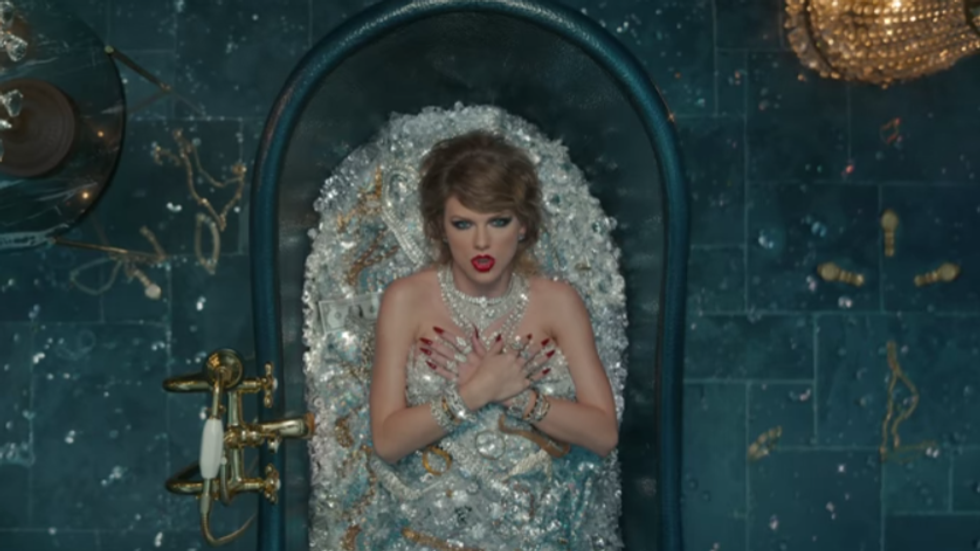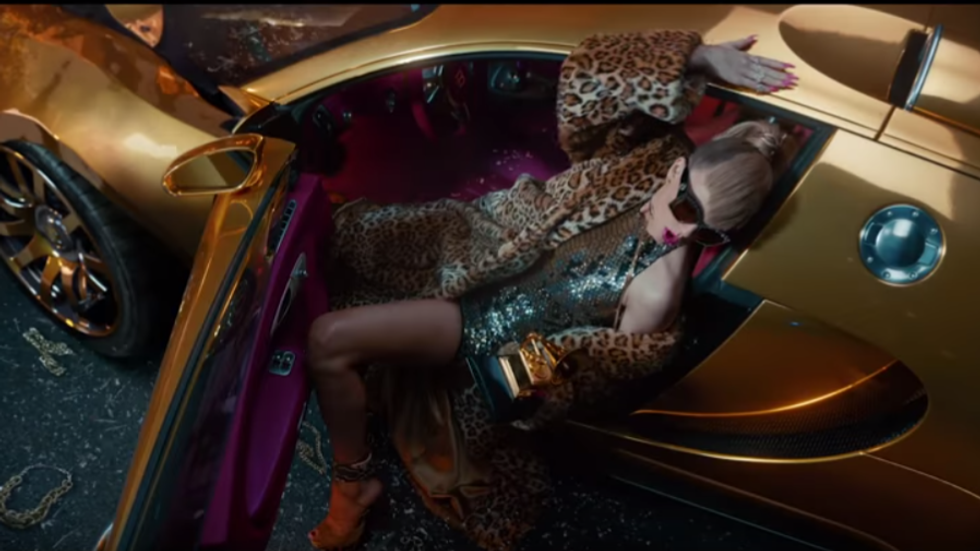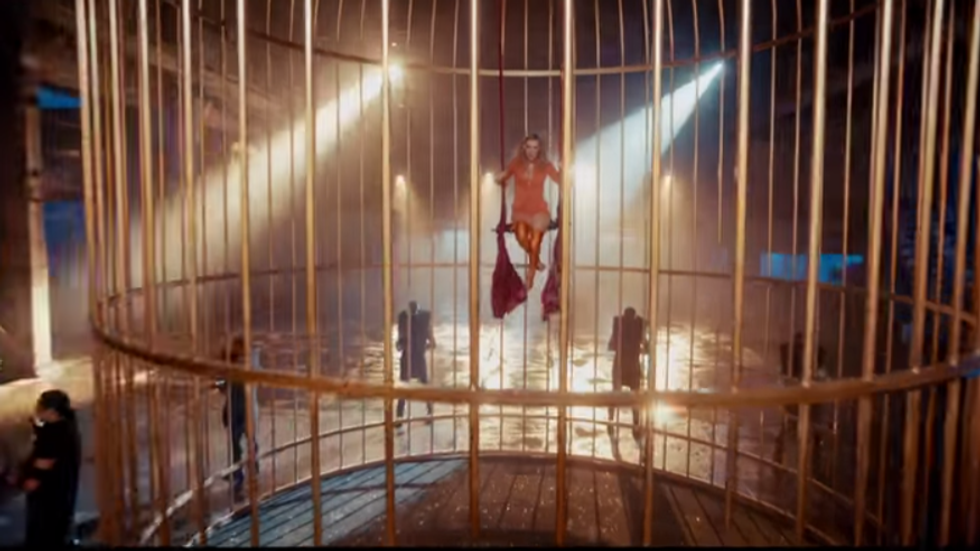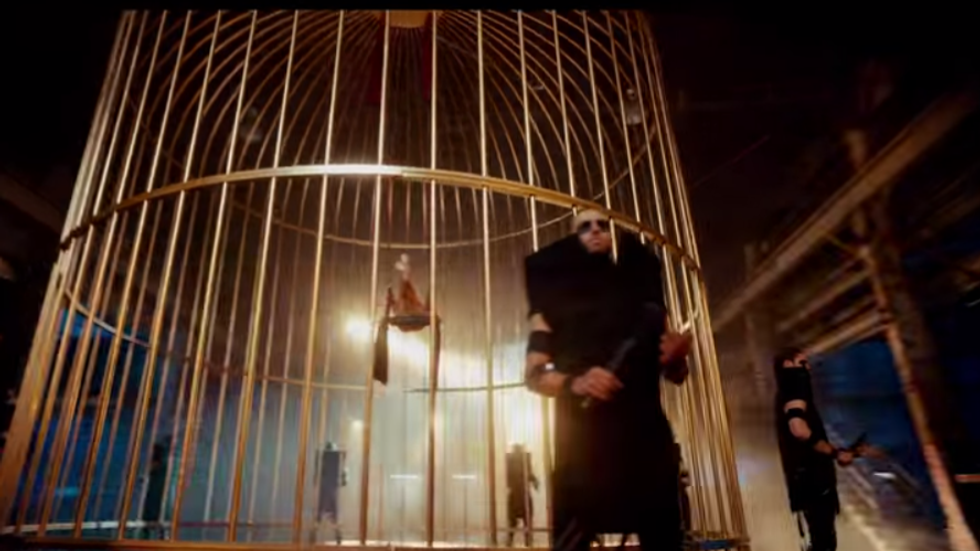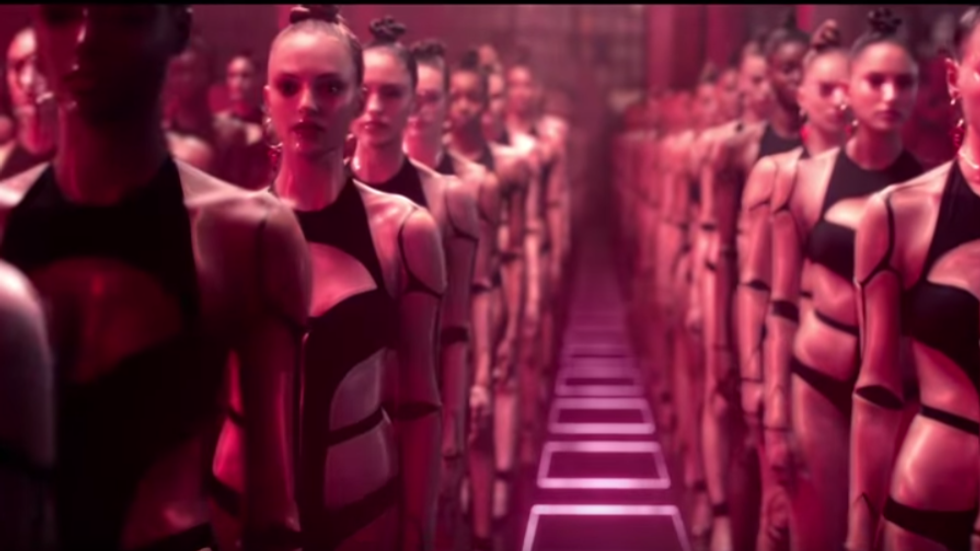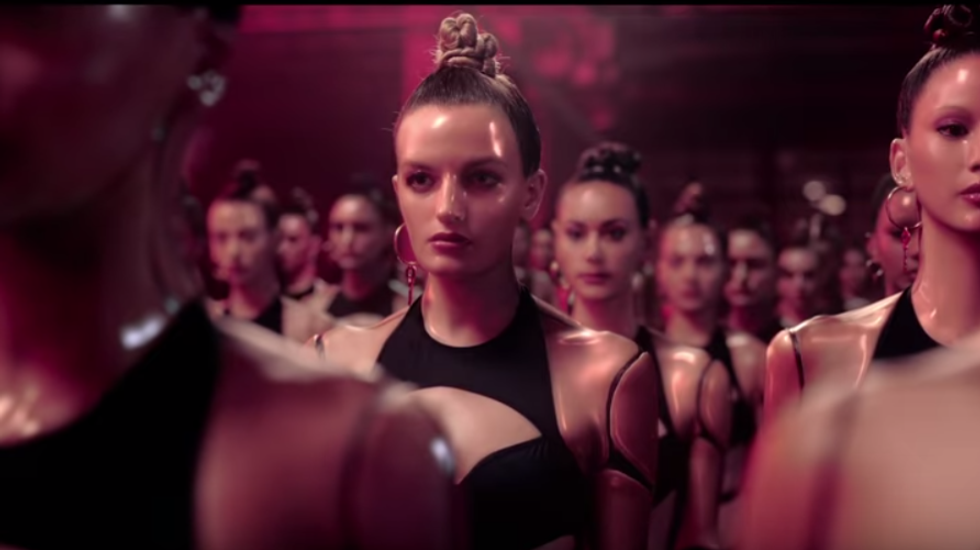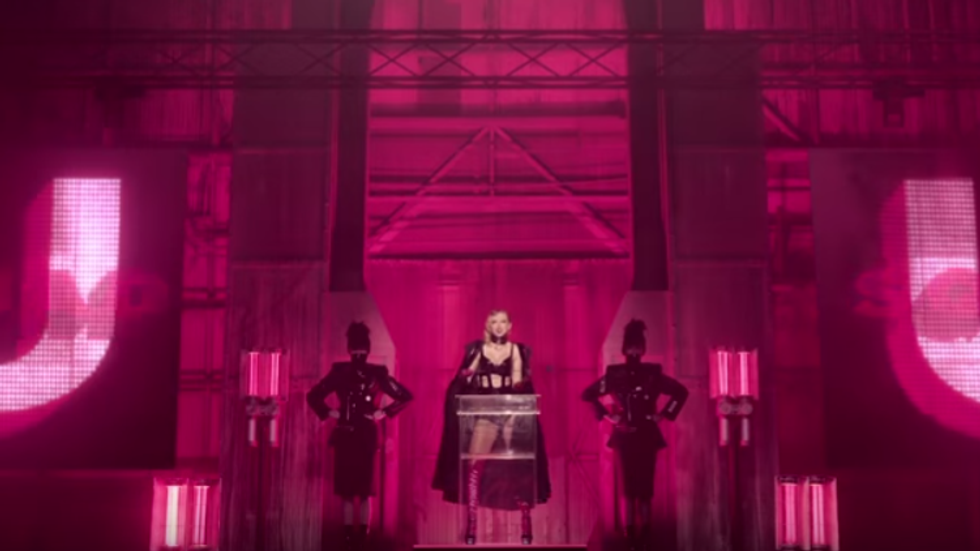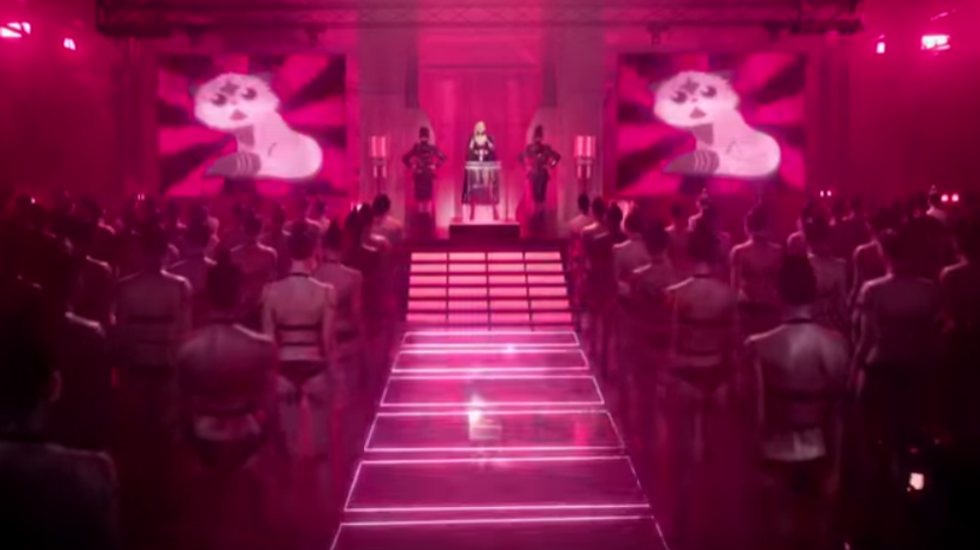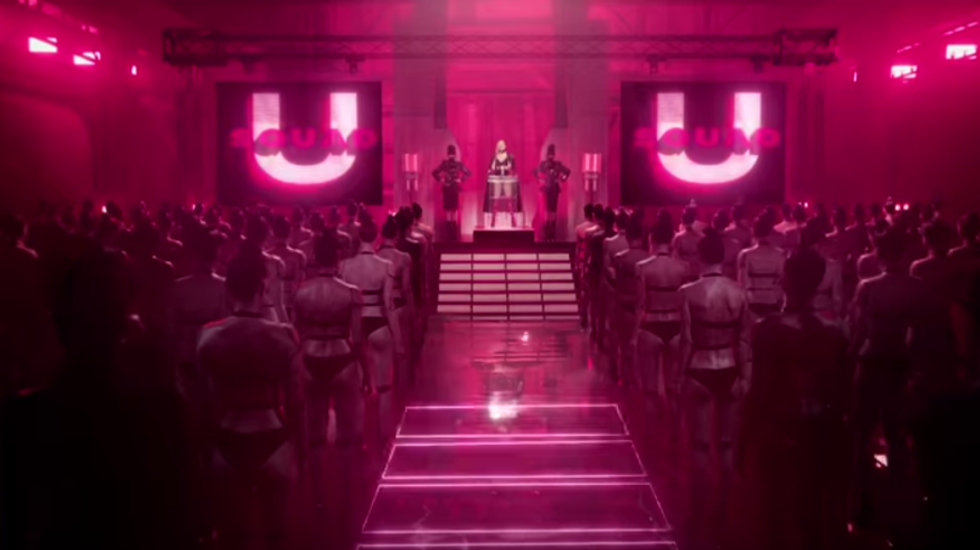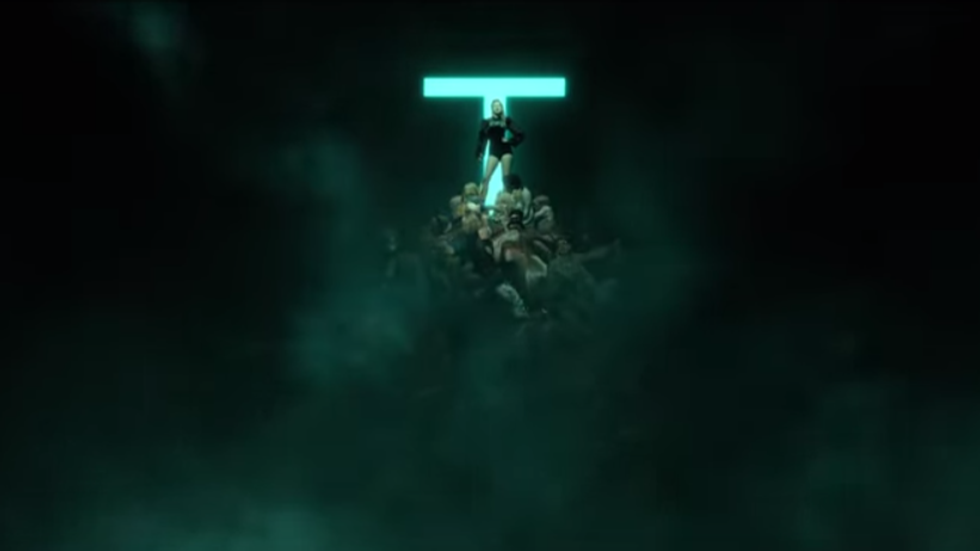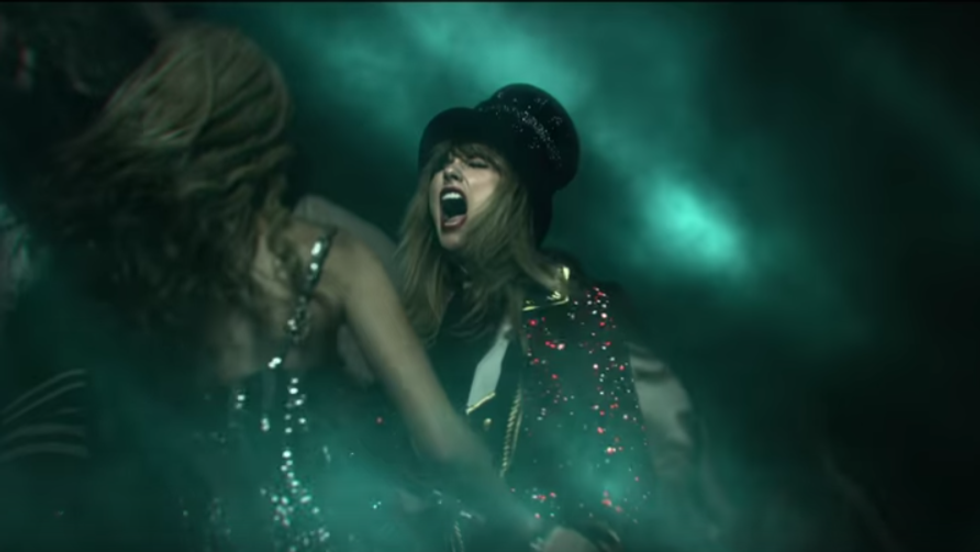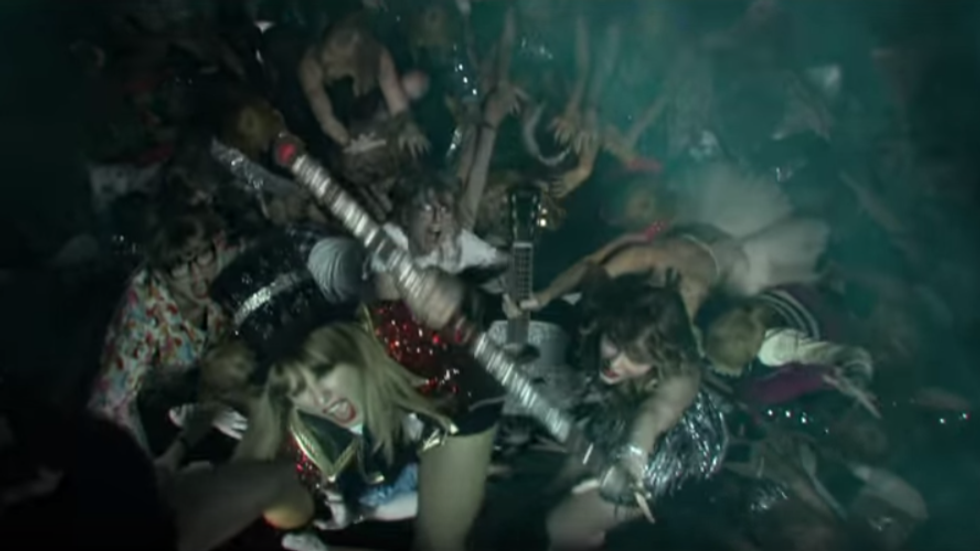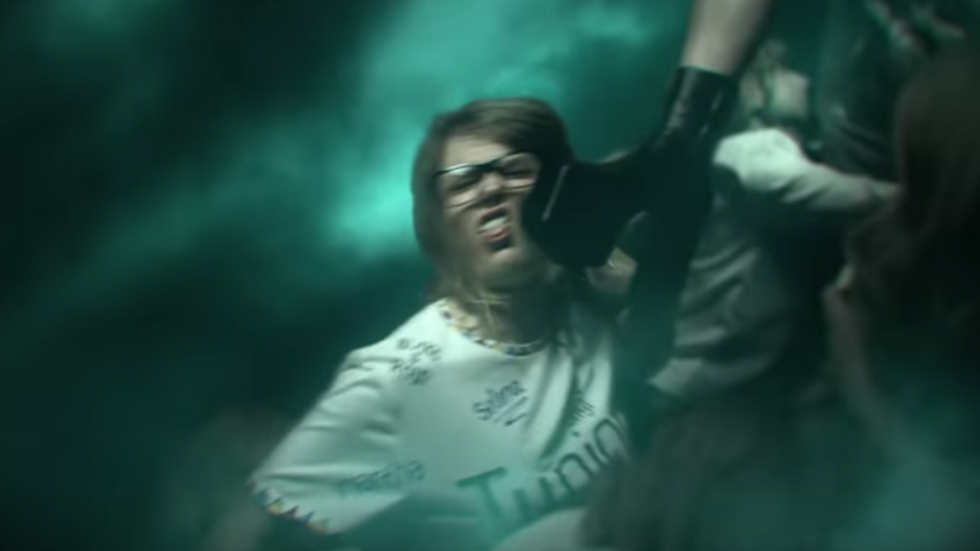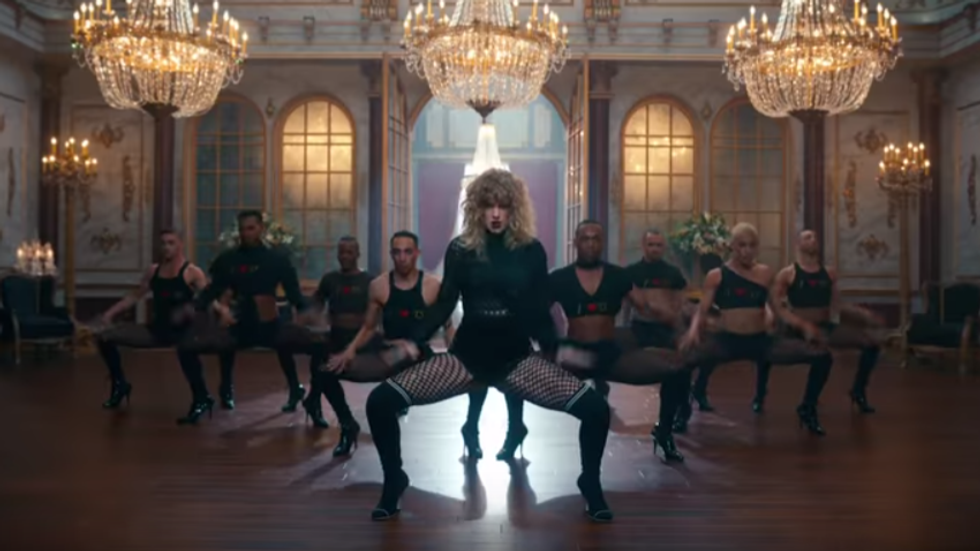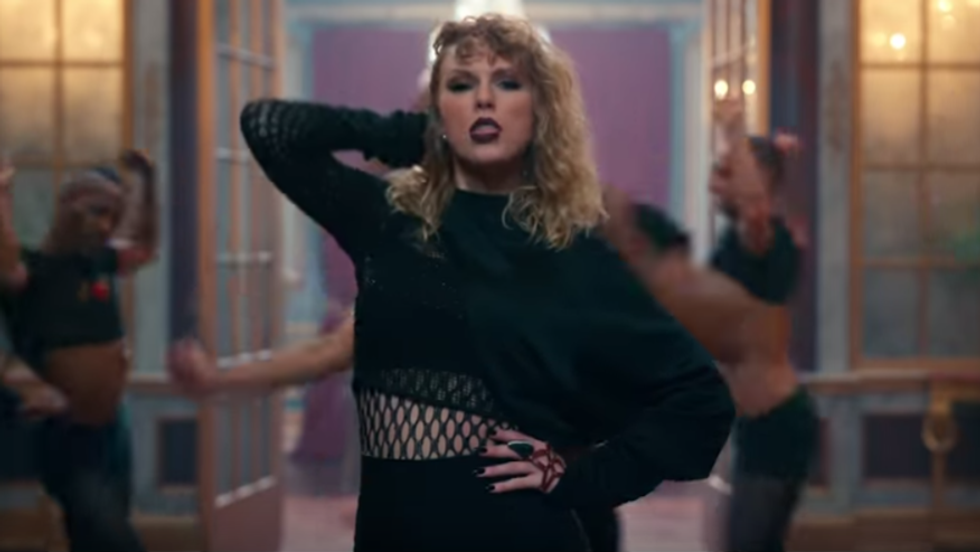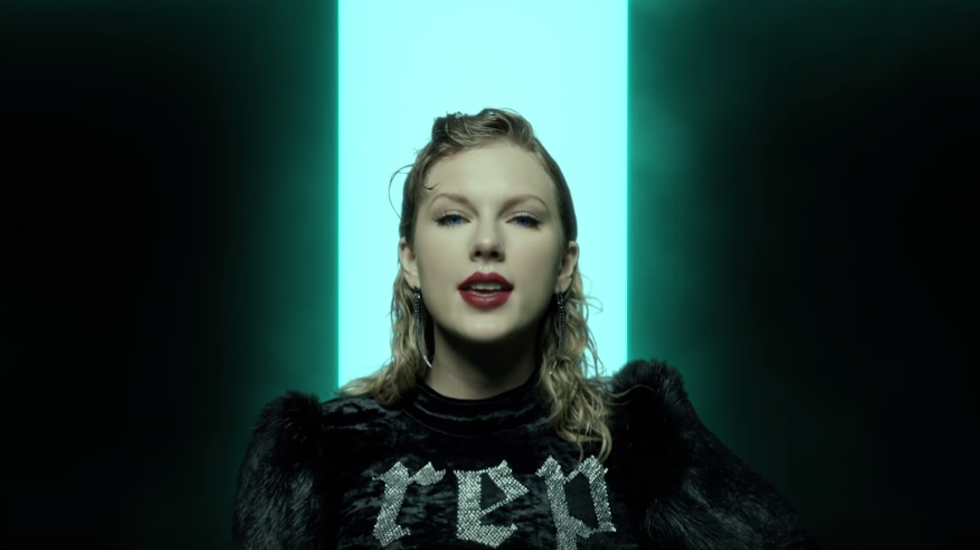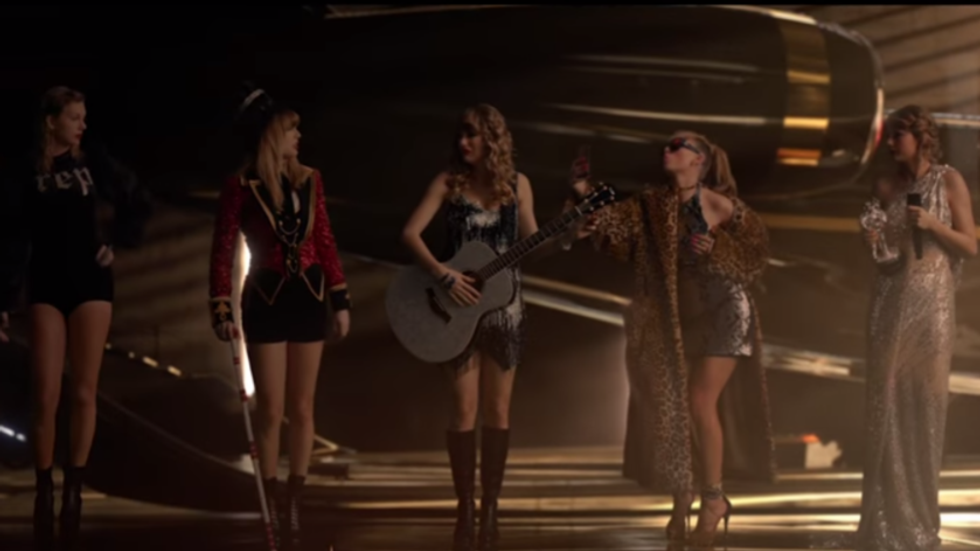Unpopular Opinion:
I like Taylor Swift’s new song.
Before you immediately close out of this article and discredit me as having terrible taste, hear me out.
We put artists under a microscope, and you can see the toll it takes on their psyche as they evolve. Taylor Swift has been producing one kind of music and one kind of image for years, and for many of us, she’s a symbol of our childhoods. Her soft croony love songs hearkened images of ourselves on back porches with our crushes and our lovers, and she guided us through our teenage fears and dreams. That’s a very personal thing.
When an artist’s work helps forge our identity, we start to feel like we own the artist. We feel like the artist has a fixed image of who they are and what they represent: we treat them as archetypes or gods, not people. But they are people, and people change. The microscope of fame and the asphyxiating pressure of living up to an image is something we see artists struggle with all the time.
Remember how much people hated Britney when she went from a sweet 16-year-old girl to an empowered sex goddess virtually overnight? It’s jarring, for us. It’s jarring for our identity because when we consider artists, their identity is no longer their own. They exist to fulfill these surreal archetypes and they perform all kinds of psychologically agonizing puppetry just to meet the standards of the character platform upon which they rose to fame.
Look what you made me do.
Artists are not ethereal archetypes or fixed personality traits: they are people. They don’t belong to us. But they sell their soul to us, in a way, to satisfy the deep-seated whims, fears, desires, and fixations of our own identities as fulfilled by the cultural artifacts we consume and produce. We love artists. We hate artists. We do both in a very personal way.
But they are not puppets: they are people. And we are cruel to them. And fame is a lavish and greedy God. The crown jewels of civilization, excess, and the culture industry shower artists with exorbitant wealth and power we can scarcely fathom. Can you imagine what the suffusion of such excess, the cruelty of puppetry, must do to the soul?
I’m not trying to pull a “Leave Britney alone!” card here. Our cruelty to celebrities is a tale as old as pop culture itself (okay, still not very old), but it’s an exhausted narrative. I’m asking you to look at her art as the work of a person, and think about it that way. How much of it is actually her, anymore?
Do you think she ever got tired of the old stereotype she had to fulfill? Do you think she even had freedom to rebel against that while at the beck and call of a major record company that responds to the market, and also simultaneously at the beck and call of ordinary people, as she’s forced to answer for issues larger than herself? You could argue that she’s not “committing” to rebelling against her situation or that she’s not “authentic,” but does she even have the choice to be an entirely different artist?
Look what you made me do.
Is she addressing Kanye and the Kardashians? Is she addressing the man who groped her naked body, whose acts she was then forced to recount and prove in the public forum of a court, a traumatizing and exposing act which adds to the already traumatizing and exposing experience of suffering the act itself?
Is she addressing men in general? Is she addressing the paparazzi? Is she addressing the very people and industries who lavished her with exorbitant wealth and fame (see the ridiculous and satirical shots of disgusting wealth around her as she steps out of cars)? Is she addressing the record company? Or is she addressing the viewer itself?
I don’t think Taylor Swift is trying to be cool in this music video. I think we’re underestimating her. I think this song is actually very dark. I think she feels that she’s been tortured and murdered, and she’s making fun of it, and attempting to embrace it: not to revamp herself, but more to make a commentary on how she’s already been revamped endless times by endless people.
And I don’t think it’s about Kanye West, even though there is some obvious imagery alluding to that here- I think that’s an overly simplistic interpretation. The Kanye-Interrupting narrative is a powerful icon and symbol in her narrative of engaging with the public world, and she alludes to it, but only to serve her underlying purpose.
It’s not the point of the song. I think it’s ironic, this video. I think it’s dark, and deeply chilling. I think it’s empowering, and while this is clearly not Taylor Swift’s genre or character of trade, I think she’s well aware of that, and I think that’s the point. I think this is a eulogy of sorts, in more ways than one.
And I think it’s a lot like her early-album revengeful break-up songs, but I think it’s a break-up song with herself, and the self who has died, and I think she’s revengeful towards the record companies, the public media giving her fame, revengeful towards the exorbitant wealth, revengeful towards the whims of millennials, revengeful towards the culture industry, revengeful towards men, revengeful towards the viewer, revengeful towards excess and prostration, and most of all, revengeful towards herself. This isn’t Taylor Swift. She knows that. And she’s not trying to be someone else.
If you haven’t yet, watch the music video. Try to fight instincts such as, “I like this,” or “This is stupid.” Look at what she’s doing, and look at why.
Analysis
I can back up my theory, but we've got to break it down. Several shots stand out to me in their intentional irony and symbolism as thematic of Taylor's point I described in the earlier paragraphs. Let’s look at these themes one by one as we see them alluded to in the video piece-by-piece so we can break it down and try to understand what she's saying in this video. Let's look at some narrative symbols she uses to convey her message in this video. There are many Thematic Elements As Narrative Symbols:
Overt Symbols of Extravagant Wealth
0:35-41: Extravagant and tasteless wealth. To the point where it feels disgusting. See my earlier point about a commentary on wealth and power.
Also this shot. This is ridiculous and not at all her aesthetic. She's saying something here. A gold car? A cheetah?! This could not be more obviously intentionally representative of extreme wealth, and then note that the car representing wealth and fame is the one that crashes. That's what happens from fame.
Her Childlike Persona As A Prison
1:21- 1:32: Inside a birdcage (a gold birdcage, symbolizing wealth and fame that have made her famous but kept her imprisoned in her persona), Taylor is trapped, swinging on a swing like a child in her dreams, kept inside this image of herself as sweet and young just swinging over and over for everyone to watch, kept there by armed Security Guard men: kept in her pretty childhood cage.
The Female Body As A Brainwashed Product
Look at 1:50 to 2:05: This imagery is not subtle. Note the identically lined-up women’s bodies, blank slates, plastic imitations of people that they are. We are mannequins to consumer culture, and Industry's fascist whip of brainwashing presides over us, over all bodies, over Taylor's body, and over her female body as well as the female body in general.
They are mute and doll-like, even with a shiny Mattel-like veneer.
The crueler Taylor presides over them, presides over her own (female) body. At her sides are two guards dressed in Soviet-Russia-era uniform.
The Tyranny of Consumer Culture
Allusions to 1984, Soviet Russia, and Maoist propaganda replaced with millennial jargon
The shot imitates one from a classic film depiction of 1984, except with the consumers replaced by these disposable women’s bodies. On the screen is an image of a cat alluding to Maoist propaganda.
The above images flashes intermittently with the word “SQUAD,” a belonging-ness fragment of millennial jargon, and at one point (at the beginning, as well as at 1:58 to 1:59, especially if you watch it at the slowest playback speed), it looks like it says SCUM as it disappears.
Warring Selves and Taylor As Martyr
2:30 zooming out shot: In the zooming out shot, against the T and the writhing remnants of all her former selves, she sees a blacker version of herself pinned to a cross. All her former identities are warring and struggling among themselves, all of the Taylors from her different videos are fighting each other to be free. Meanwhile, it is New Taylor who is pinned to the "T" crucifix of her Taylor Swift brand which has martyred her into this incarnation at the expense of who she really is and all the people she's had to be.
Wrestling With Industry For Control Of Her Art
2:43, 2:44: Ringmaster Industry Swift and Old Taylor Swift (dressed as she was in her first album) wrestling over a baton, representing her voice, her power, her art, her control, her music career. Ringmasters control things, and they control shows, and they command artists, and I think the Ringmaster represents the music industry.
Old Taylor is wrestling with the Industry/Ringmaster Taylor for control of her voice and the medium of her art, represented by the baton, as her old self is fighting to have power and stop it from being seized by Industry (a struggle every artist understands).
No wonder we don’t like it.
“She’s trying too hard,” is what everyone says of her song and this video.
I know. I think that’s the point.
“It’s not pleasant to listen to. It’s repetitive.”
I know. I think that’s the point. Not to be entertaining, but to be tragic.
Britney Spears Parallels As Commentary
For 2:15 to 2:20, there are obvious parallels to Britney Spears (and she's making an interesting statement by not trying to be Britney Spears, but by still including Britney and what happened to her as a narrative tool in Taylor's own struggle). At 3:05 to 3:20, she is literally re-enacting Britney-era dancing as depicted in an actual shot from a Britney Spears music video. This is also probably an allusion to the similar “sweet girl” image that bird-caged Britney Spears the artist, which perhaps Taylor Swift identifies with in her own way.
Parody of Rap Culture
Her attire in other shots, including the puffed-sleeve shirt and tights, as well as the flashy and irreverent displays of exorbitant wealth and her own name branded on things “TAYLOR” (something she’s never done), could be an allusion to the self-repping showy Kanye-esque imagery of rap culture. “Oh, you made my career?”
In a similar commentary on rap culture, an allusion to rap videos' obsession with shots of artists throwing around tons of bills and money, Taylor does this herself, but the money is burning. Fame sucks.
"Look What You Made Me Do" Vs. Narrative As Self-Defined
The ending shot with all of her former selves standing in line in front of a grounded plane is probably the most self-evident.
As all the Taylors are arguing among themselves, note that it is Early Taylor, not the Taylor of this video, that says the ending line, but also, it is the first time any Taylor except the protagonist one speaks at all. She says, quite simply, "I would very much like to be excluded from this narrative." As she’s surrounded by her other identities outside the platform of a grounded plane, Taylor is well aware more than anyone that it’s far too late for that.
"I would very much like to be excluded from this narrative."
What I see is Taylor communicating, "So if I can't be excluded from this narrative, if I have to give you this manic monkey game of caricatured self to fit consumer culture, I'll play in this narrative, this video is my narrative, guys, giving all your symbols back to you. What is consumer culture making me into? What is it making me do? It's okay, I'll do it. I'll play. Here’s my puppetry.
Do you like that? *smirk* I hope you hate it. I think that would be nice."
The tune of the song is at times catchy, at times discordant and jarring. I think this makes sense and is an interesting commentary on the tools of her medium of predictable pop music style itself. I don't think it's meant to be good, or at least not "good" as we view it.
We forget that art is not created for our consumption alone, and that art has an intrinsic quality of self-expression that popular music in consumer culture is often devoid of. That self-expression which is the nature of all art is not evident in most of the industry-standardized songs we hear.
But Taylor takes these elements, these elements which defile music as art and self-expression, the terrible tools of popular music, and she uses them to break it. She uses these tools which negate inherent meaning in art, and she uses them in a work of self-expression, grabbing control of these ghoul-like empty machine tools of the culture industry and music as propaganda, and she uses them for her own ends, infusing meaningless archetypes with meaning.
She creates meaning from a meaningless thing. And what she uses those tools to say is perhaps the first truly original thing she's said in a long time.
Taylor hasn't actually changed at all, and this is still a crooning break-up song about those who did her wrong. Except this time she's not singing about a boy, she's singing about the music industry. And she's singing about you.
I don't think this song is meant to be good. I think it's deeply profound and incredibly dark.
So don't be too quick to condemn her. It might have just flown over your head, and I think it flew over the heads of most music critics as well. If anything, that only underscores her point.


